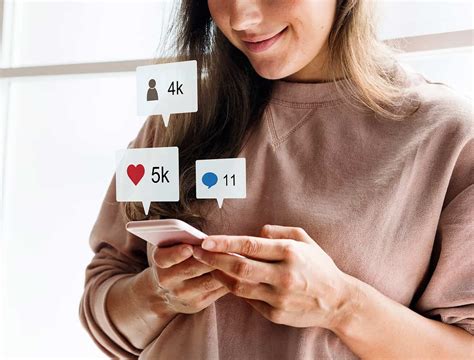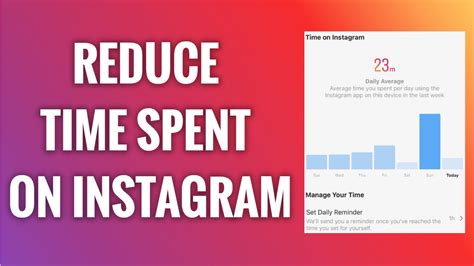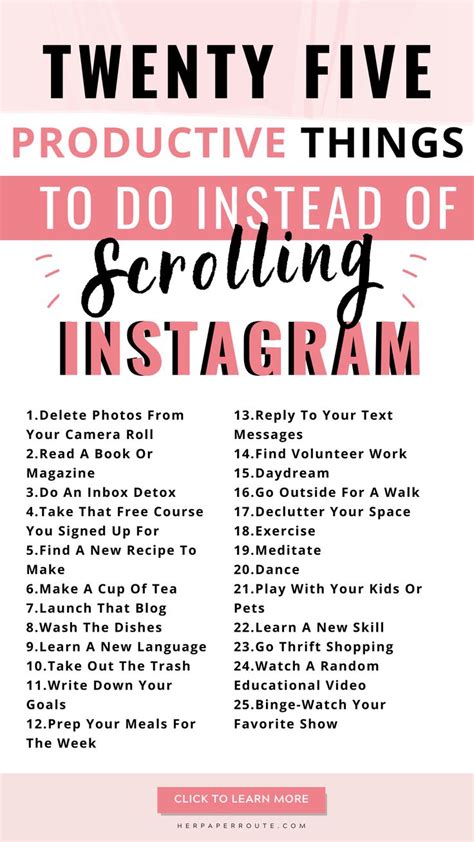The Negative Impact of Social Media Addiction
Social media has become an essential part of our everyday life. It has bridged the gap between people and has made communication more comfortable and more accessible. However, excessive use of social media can result in addiction, which has several negative consequences on our lives. Addiction can lead to challenges such as a lack of concentration, productivity, and anxiety. Moreover, social media addiction can also damage our physical health and emotional well-being.
Social media addiction can significantly impact our mental health. Individuals who spend several hours scrolling through their social media pages often experience anxiety and depression symptoms. Such addiction tends to consume our mental energy and leave us feeling empty. Social media addiction can create a virtual world where we live behind a screen, leading to a feeling of isolation and loneliness. Detaching from this virtual world can be very challenging for individuals who are addicted to social media as they have invested time, energy and emotion into building an online world where they feel comfortable.
Another negative impact of social media addiction is physical health problems. Sitting in front of the screen for extended hours can cause severe health issues such as sleep deprivation, fatigue, headache, and eye strain. Research also shows that excessive use of social media can cause neck, shoulder, and lower back pain due to poor posture. Therefore, social media addiction can damage our physical health and well-being.
Limiting the use of social media can have significant health benefits. By limiting the time spent on social media, individuals can focus on other activities that promote physical and mental health, such as exercise, reading, or pursuing a hobby. Individuals can also spend time with family and friends, strengthening real-life relationships. These activities enhance an individual’s mood, reduce stress, and promote physical health.
In conclusion, while social media has its benefits, excessive use can result in addiction, which has negative consequences on our physical and emotional health. By limiting social media exposure, individuals can experience positive health outcomes and enjoy a more fulfilling lifestyle. It is essential for individuals to recognize the addictive nature of social media and take appropriate measures to limit exposure while focusing on cultivating a healthy and balanced lifestyle.
The Consequences of Constant Instagram Use

Instagram is one of the most popular social media platforms used today. With over one billion active users, it has become the go-to source for visual content, social connection, and personal expression. However, constant use of the app can have negative consequences on our mental and physical health, relationships, and productivity.
The Mental Health Consequences of Instagram Addiction

Instagram addiction can lead to serious mental health problems, including depression and anxiety. According to a recent study, excessive use of social media can cause changes in the brain that are similar to those seen in drug addicts. This is because social media platforms, including Instagram, trigger the release of dopamine, a neurotransmitter associated with pleasure and reward. This can lead to addictive behaviors and a dependence on the app to feel good.
Another aspect of Instagram that can negatively impact our mental health is the constant comparison we make with others. People often post their best moments, filtered pictures, and the highlights of their life, which can create a false sense of reality. This can lead to feelings of inadequacy, low self-esteem, and a decrease in life satisfaction.
Moreover, scrolling through Instagram can be a mindless activity that requires little to no effort, making it a refuge for when we are bored, lonely, or stressed. However, using Instagram as a coping mechanism can be harmful, as it can prevent us from dealing with our emotions and finding healthier ways to manage our stress. In the long run, this can lead to a decrease in our overall well-being and a higher risk of mental health disorders.
Overall, the mental health consequences of Instagram addiction are serious and can greatly impact our quality of life. It is essential to be aware of how our social media use affects us and to practice self-care techniques to limit our exposure and reduce the negative impact.
Setting Boundaries for a Healthier Relationship with Technology

It’s no secret that social media has a way of making us feel down or anxious at times, and Instagram can be a big culprit. From comparing ourselves to others to constantly scrolling through our feeds, it’s easy to get lost in the platform. That’s why it’s important to set boundaries when it comes to how often we use Instagram. Here are three ways to limit your usage and have a healthier relationship with technology:
1. Determine Your Triggers
First and foremost, it’s important to pinpoint what triggers you to use Instagram. Is it boredom? Feeling lonely or insecure? Or do you just simply enjoy scrolling through your feed? Once you identify these triggers, you can work towards finding healthier alternatives or ways to deal with them. For example, if boredom is a trigger, you can replace Instagram usage with a hobby or activity that brings you joy and fulfillment.
2. Set Time Limits
It’s easy to get lost in the infinite scroll of Instagram, so it’s important to set time limits for yourself. This could mean giving yourself a set amount of time each day to check the app, or using a timer to remind yourself when it’s time to log off. You can also set boundaries for when you use the app, such as not checking right before bed or during meal times. By setting these limits, you’ll be able to have a better grasp on your Instagram usage and prioritize other aspects of your life.
3. Take a Social Media Break
If you find yourself constantly using Instagram and struggling to set limits, it might be time to take a break. This could mean deleting the app for a set amount of time, or going on a social media detox altogether. Taking a break from Instagram can help you reevaluate your relationship with technology and reset your habits. When you do decide to come back, you can start with a clean slate and set new boundaries for yourself.
At the end of the day, it’s important to have a healthy relationship with technology and social media. By setting boundaries and limiting your Instagram usage, you can prioritize other aspects of your life and improve your overall well-being. Remember, social media is just a small part of your life, not the entire picture.
Productivity Tips for Reducing Instagram Time

Instagram has been a popular social media platform for years, and while it can be a great way to stay connected with friends and family, it can also be a big time drain. If you find that you’re spending too much time on Instagram and it’s affecting your productivity, here are some tips to help you reduce your Instagram time.
1. Set a Time Limit
One of the easiest ways to reduce your Instagram time is to set a daily or weekly time limit. Decide on a reasonable amount of time that you want to spend on Instagram each day and stick to it. You can set a reminder on your phone or use an app that tracks your Instagram usage and sends you alerts when you’re nearing your time limit.
It may be tempting to spend more time on Instagram, but try to stick to your limit. You’ll be surprised at how much more productive you can be when you’re not constantly scrolling through your Instagram feed.
2. Turn Off Notifications
Instagram notifications can be distracting and interruptive. When you receive a notification, you’re tempted to check it right away and can easily get sucked into the app for longer than you intended.
To avoid this, turn off your Instagram notifications. You’ll still be able to check your account when you want to, but you won’t feel compelled to respond to notifications immediately. This will help you stay focused on your work and reduce the amount of time you spend on Instagram throughout the day.
3. Create a Schedule
If you find that you’re spending too much time on Instagram, it may be helpful to create a schedule. Decide on specific times of day when you’ll allow yourself to check Instagram, and stick to this schedule.
For example, you can check Instagram during your lunch break or after you finish work for the day. This will help you keep your Instagram usage under control and prevent you from mindlessly scrolling through your feed whenever you have free time.
4. Replace Instagram with Productive Activities

If you’re finding that Instagram is taking up too much of your time, try replacing it with more productive activities. This could be anything from doing a quick workout to reading a book or learning a new skill.
When you have free time, instead of automatically reaching for your phone and scrolling through Instagram, try doing something more productive and fulfilling. Not only will this help you reduce your Instagram time, but it can also help you become a more well-rounded and productive person overall.
Reducing your Instagram time can be challenging, but it’s important for your overall productivity and well-being. By setting a time limit, turning off notifications, creating a schedule, and replacing Instagram with more productive activities, you can take control of your Instagram usage and become more productive in all areas of your life.
Cultivating Real-life Connections Beyond Social Media Platforms
It is no doubt that social media has revolutionized how people connect and communicate with one another from different parts of the world. Instagram, among other platforms, has become ubiquitous in our daily lives, and it provides us with a space to share our lives with others. However, studies have linked excessive use of social media, including Instagram, with loneliness and depression. That is why we need to limit how often we use Instagram and focus on cultivating real-life connections beyond social media platforms. Here are some ways through which you can build genuine, lasting connections outside the digital world.
1. Engage in Physical Activities or Join Interest Groups
Joining interest groups such as book clubs, photography classes, or hiking clubs can be an excellent way to connect with like-minded people. If you are not sure of any interest groups in your area, consider engaging in physical activities by joining a gym, taking dance classes or signing up for yoga sessions. Such activities provide the opportunity to not only interact with others but also improve your overall physical and mental well-being.
2. Volunteer in Your Community
There are countless organizations and groups that are always in need of volunteers in communities. Serving as a volunteer can help you connect with others who share your passion for community service. Additionally, volunteering provides you with the chance to make a difference in the lives of others, boosting your self-esteem and sense of fulfillment.
3. Attend Events and Gatherings
Attending events, such as concerts, festivals, or sports games, can be an excellent way to connect with others who share similar interests. Moreover, attending community gatherings such as street fairs or farmers’ markets provides an opportunity to connect with members of the community and support local businesses. Make a point of attending such events regularly, and you may be surprised at the quality of connections you make.
4. Spend Time with Family and Friends
Spending time with family and friends is a great way to cultivate real-life connections outside digital platforms. You can plan to have dinner with close pals, go out for picnics or visit your siblings or even parents. Engage in fun activities together, such as playing board games or exercising together. Such activities help to strengthen existing relationships and minimize the feeling of loneliness and isolation.
5. Unplugging Regularly
As much as Instagram can be a great tool for sharing your life with tons of followers, it is essential to remind ourselves that social media does not define us. Therefore, it’s crucial to take breaks once in a while and limit our usage of social media platforms like Instagram. When we unplug, we give ourselves an opportunity to focus on our personal relationships and passions, which ultimately lead to personal growth and self-discovery.
In conclusion, we need to limit how often we use Instagram and focus on cultivating genuine, lasting connections outside the digital world. Engage in physical activities, volunteer in your community, attend events, and spend quality time with family and friends. Remember, unplugging regularly helps to nurture personal relationships, and it impacts positively on our emotional and mental well-being.


